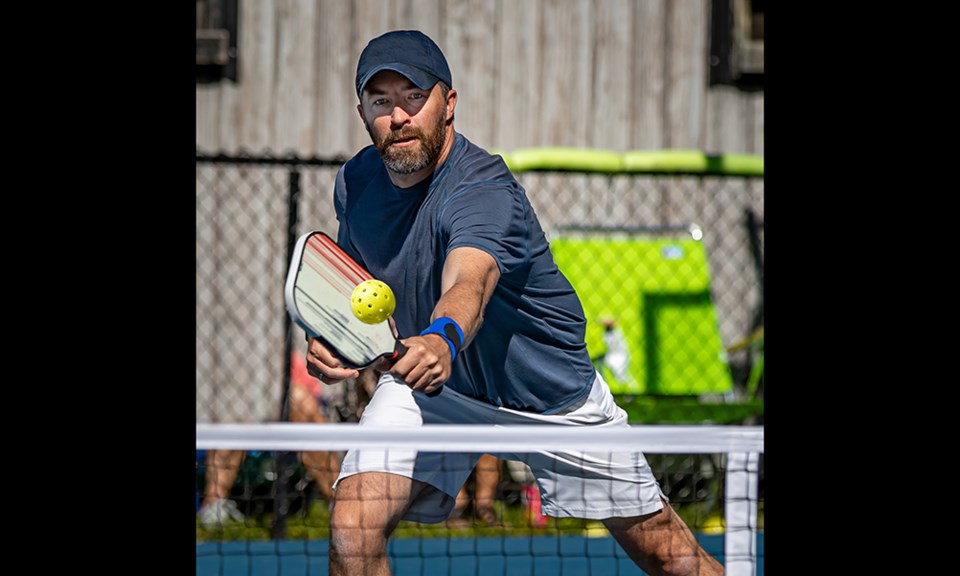If Arlington County Board members thought their two-month summer break would bring a respite from battles over pickleball courts, they were quickly disabused of the notion.
A representative of the Columbia Heights Civic Association on Sept. 23 rapped efforts by the Department of Parks and Recreation at Walter Reed Community Center, saying the number of planned courts must come down and noise-mitigation efforts must improve.
“We’re willing to live with it,” Reginald Nixon said of pickleball play at the community center, “but it’s not going to be the grand vision that Parks and Recreation recommends.”
He was speaking at the public-comment session of the County Board’s first full meeting since July.
Since 2017, when the county government added pickleball striping to a number of existing outdoor sport courts at Walter Reed, the community center has served as the poster child for trying to come up with a middle ground that satisfies both fans of the activity and neighbors of the courts.
Over the past year, county staff have scaled back plans for the final number of pickleball courts at Walter Reed, and have begun to provide pickleball striping on tennis and basketball courts across the county in an effort to spread out play.
The county government also installed noise-mitigation efforts at Walter Reed, but Nixon told County Board members it wasn’t working. The sound abatement is “deflective rather than absorbing,” he said, aggravating sound in the neighborhoods.
“You need not just sound abatement . . . you need distance,” Nixon said. The space between the courts and homes, sometimes a mere 100 feet, “is just too close,” he said.
Those County Board members who responded to the comments seemed to be playing for time.
“We are evaluating how those [noise-mitigation measures] are working,” said County Board Chairman Christian Dorsey, who also seemed to pooh-pooh a scientific study referenced by Nixon about noise impacts.
Much like those who live around airports, noise “is experienced by people subjectively,” he said.
Both Dorsey and his board colleague Libby Garvey used the phrase “work in progress” to sum up the situation.
“We’re trying to [find] any and all ways to figure out how to make pickleball work,” said Dorsey, who will wrap up eight years of service in December and leave battles like these in the rear-view mirror.
Their County Board colleague Takis Karantonis asked County Manager Mark Schwartz what the government’s follow-up would be. Whether it was a rhetorical question or not, Schwartz had no immediate reply.
The pickleball contretemps might have been more of a political lightning rod – especially in a year when two of the five County Board seats are on the ballot – except that the anger of one or two neighborhoods over any particular issue is diluted owing to the county’s at-large voting system for local offices. And neither of the two candidates attempting to overcome the county’s built-in Democratic majority (Republican Juan Carlos Fierro and independent Audrey Clement) have made the issue much of a rallying cry in their campaigns.
One way to provide more space for pickleball players would be to let the private sector address it. County officials, faced with what could be a long-term problem of vacant commercial-office space, have tinkered with zoning rules that would allow more uses in those buildings – including sport courts.
The parks department is working with the county government’s economic-development arm to gauge interest, county parks director Jane Rudolph said when the matter was discussed at a springtime County Board meeting.



